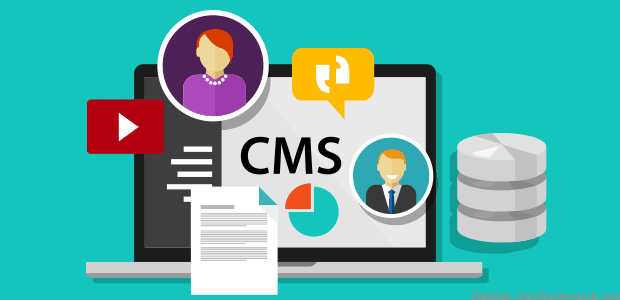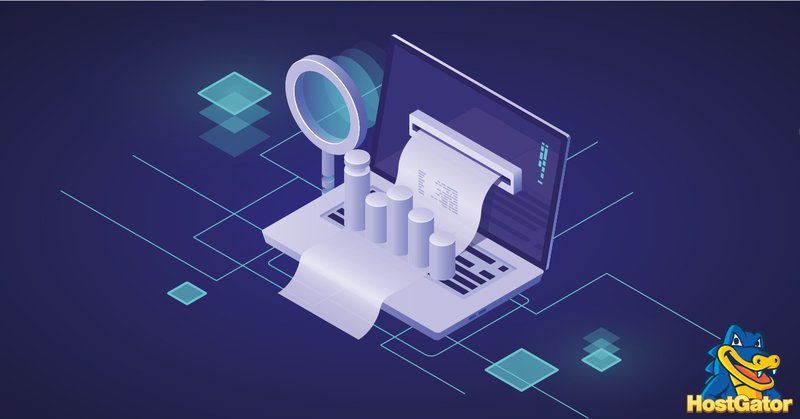

When developing a website, making a choice between a web application framework and a content management system is often troublesome. This decision needs to be a well-educated one for which you need to clearly understand the difference between web application framework vs. content management system. This article is a deep dive into what web application framework and content management system is, along with their respective pros and cons. By the end of it, you will be well versed in both options and will be able to make an educated choice based on whatever is best for your project.
A web application framework is a set of codes that can be used as a foundation to base your web on. A framework comes with common codes that can act as building blocks that you can use to build your website. They can also be treated as libraries that contain collections of codes and frameworks. You can use the existing frameworks in a fashion similar to plugins in CMS to create new functionality.
Microsoft offers the NET Framework. It supports F#, C#, and Visual Basic programming languages. The .NET software development framework is primarily used to build and run applications on Windows servers.
CodeIgniter is a PHP framework that is known for its small footprint and hassle-free nature. Beginners prefer to use it to build lightweight applications.
Laravel is also a PHP framework that developers prefer for its expansive ecosystem.
Symfony is the first-choice for many developers, especially when building large-scale software. The PHP framework has been around longer than most other frameworks and is known for its extensive reusable components and libraries.
Phalcon is known for its speed. It is a full-stack PHP framework that uses fewer resources and consumes lesser memory than other frameworks.
A Content Management System or CMS is an application comprising features and functionalities that enable you to easily manage and publish content without a web developer’s support.
A stereotypical CMS has two major elements-
WordPress is responsible for roughly 30% of all websites that exist on the internet. It is an opensource PHP and MySQL based CMS. It is one of the simplest and easiest to use CMS available.
Magento is a PHP based opensource e-commerce CMS. Its scalability and superb features make it very popular amongst e-commerce websites.
Launched in 2004, Umbraco is one of the leading .NET framework CMS systems out there. Its compliant content management strategy makes it very user-friendly.
Joomla is the second most popular CMS (after WordPress, of course). Both beginners and advanced developers can use Joomla (though it is considered more challenging than WordPress). It has been designed with high performance in mind and flaunts many SEO-friendly features.
Drupal, like Magento, is an open-source CMS. It’s mostly used in content-heavy social publishing sites. It offers extensive features for customization and has a large selection of extension modules.
Web application Frameworks and Content Management Systems are two very different tools. To be able to decide which one is better, we need to first go over their differences.
With a CMS, you get a predefined set of features that you can further customize by downloading and installing various plugins.
Frameworks, on the other hand, are entirely customizable. You have to build and design everything from scratch. While the code you are using provides a base for you to build off, nothing is predefined. So, you can mold and shape it to fit whatever your requirements are, no matter how specific or peculiar.
With a CMS, you have limited customizability and are unable to change the core functionality. There are no such barriers with a framework.
Security is one of the biggest concerns for anyone developing n application or website, especially if you happen to be an online business owner trusted with your consumers’ sensitive information.
CMS is open-source, meaning that the code is available for everyone. This makes websites run on CMS vulnerable to security threats and hackers because they can access the code.
Websites run on frameworks have their own custom codes that are built based on the Framework. Many frameworks come with built-in functions like SQL injection or Cross-Site Scripting that allow for encryption and protection against the most common types of attacks.
A well-developed framework is far more secure than a generic CMS, but content management systems often have plugins and mods to strengthen their security.
The type of website you are building and why you are building it defines whether it may need any unique features and functionality different from your typical web development project. Examples of unique functionalities include the integration of a third-party application or the combination with independent systems. For example- a large e-commerce tool may have to integrate itself into a CRM (Customer Relationship Management) tool.
While CMS can adapt to include many custom features and functionalities through plugins, it isn’t nearly as adaptable as Framework. If you want to include custom functions in a CMS that isn’t available in the plugins and themes libraries, you will have to outsource to get it custom built. This process is quite complicated.
You can customize a Framework to fit your needs perfectly. However, this adaptability comes with a price- literally. Frameworks are a lot more expensive to build than CMS.
Your website must always be up to date, boasting the latest features and no bugs to ensure your business’s smooth running. Regularly updating your website also keeps it safe from hackers and other potential security threats.
Content Managemen Systems (CMS) are regularly updated. Conversely, websites developed from frameworks are rarely updated and require constant maintenance. A Framework based website is well-secured during its creation and often doesn’t need any updates to run. But if you want to continually upgrade and add new features to your website for reasons other than just security- CMS is the best option. Upgrading CMS is comparatively simple. You don’t even need to know PHP or any other programming languages to upgrade CMS.
Now that you know the primary differences between a Web Application Framework vs. Content Management System, there are a few factors you need to keep in mind when deciding between the two.
If the website you are trying to build is relatively simple and doesn’t require any complicated or unique features go for a CMS. For example, a CMS such as WordPress can smoothly handle a blog, a small e-commerce website.
Nevertheless, if you need a website with specific and detailed requirements, opting for a framework is the best way to go. For example- if you expect to have more than 10,000 visitors at the same time on your website, then go for Phalcon or Laravel. So much traffic will overwhelm a CMS.
How quickly you need your website built plays a deciding factor between CMS and Framework. One of the significant advantages of a CMS is its speed. With it, you already have ready-made templates and can download themes and plugins to build and launch your website quickly.
The process of developing a website using frameworks is more time-consuming. Plus, if you are already working with a minimum viable product (MVP) and are on a time crunch, CMS is the better option.
Budget is always an essential factor when making any major decisions regarding web development. CMS is significantly cheaper than Frameworks. The higher customizability comes at a higher price.
Websites created using frameworks tend to be more scalable than CMS. This is because you aren’t limited by preset themes, plugins, and architecture when using Frameworks. So if you need a flexible website, it requires unique features and has the potential for massive growth go for frameworks.
There is no right or wrong when choosing between a web development framework and a content management system.
You should now know enough about web application framework vs. content management system to make a well-educated decision. Pay close attention to the factors mentioned above and select whichever best suits you and your project requirements.
If you do go with a framework over a CMS, you sh0ould consider outsourcing the responsibility of building your website. For more details check out Polyuno.